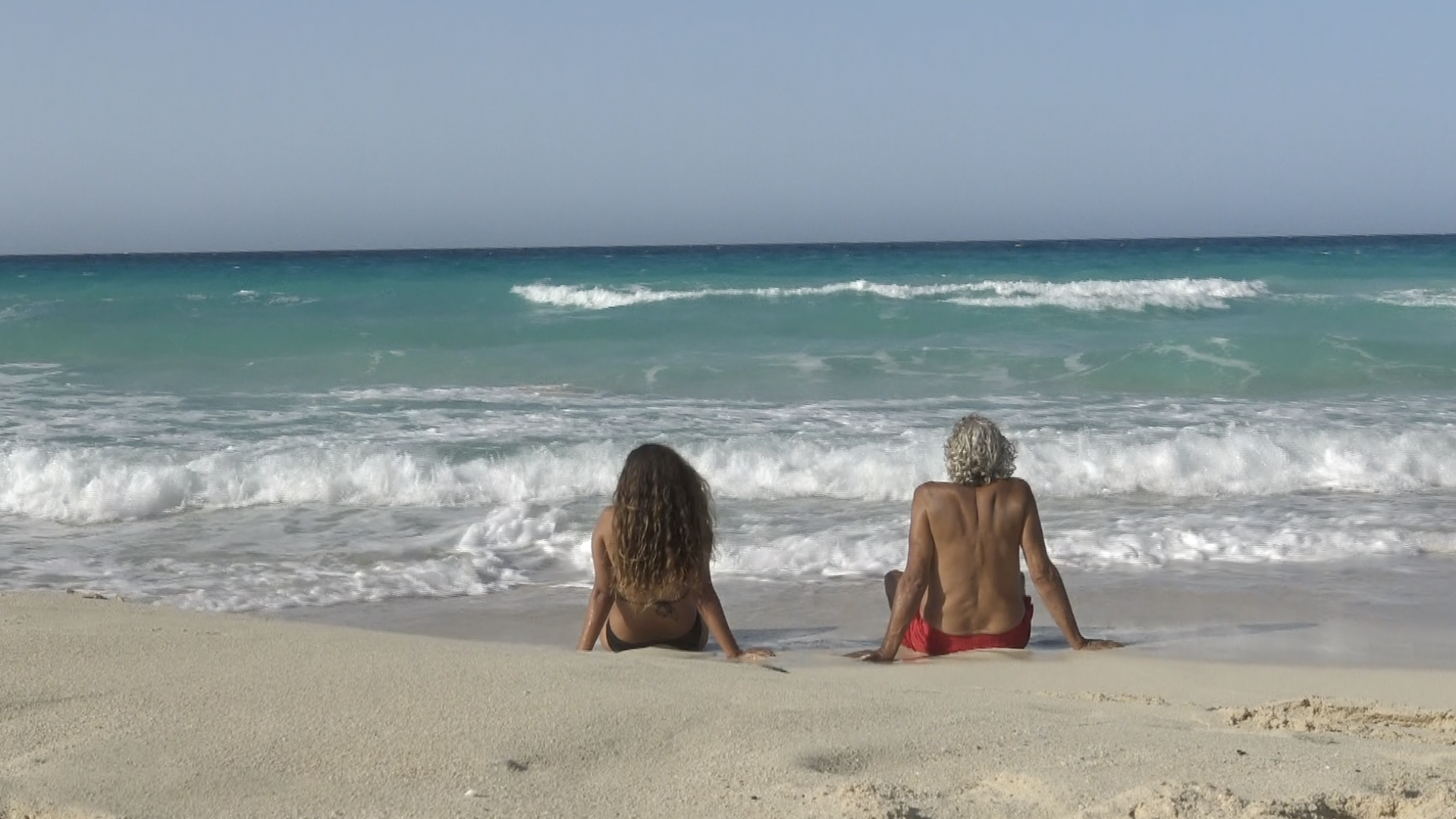‘Back Home’ (Sara Shazli, Egypt, 2021)
Film Review by Professor Robert Abrams, Emeritus Professor, Weill Cornell Medicine, New York

As with all good art, the film Back Home can offer rewards from more than one perspective, but to this viewer the film is chiefly the portrait of a resilient older man who employs self-deprecating humor as a defense against adversities beyond his control. The main character (the director’s father, Nabil Shazli) is fortified not only by his gently mocking humor, but also by the intergenerational support he gives and receives from his family, and the privileges associated with wealth and abundance. These factors, individually and together, prove to be effective remedies against the exigencies of aging and the threats to health brought on by the looming Covid pandemic. In this exceptional context, Back Home delivers sobering life lessons with a deadpan touch.
The story, a documentary, begins as a twenty-something year-old woman (the film’s director, Sara Shazli) flies “back home” after years of living abroad. She is returning to Cairo to be with her family as the Coronavirus pandemic is becoming increasingly dire in 2020.
In the first scene upon her arrival, she and her father, a man in his 70s, are discussing how to divide up a bottle of beer, a strange gluten-free quinoa brew from Peru that the daughter has brought home from her travels. Her father, laughing, pronounces it “good for my cancer.” They agree that, as a better fit with the times, the brand of the beer ought to have been “Corona.” The background music in this scene is “Pennies from Heaven,” sung by an unidentified baritone who sounds like Louis Armstrong. In this place and at this time, the lyrics of the song imply that the seeming misfortune of rain will bring unexpected rewards, if only one is able to recognize them.
The majority of the film takes place in the family’s apartment high atop Cairo, a spacious dwelling with big windows overlooking the pandemic-muted activity of the city. There, the father carries on a continuous conversation, mostly with his daughter, and sometimes with himself alone. His tech-obsessed DJ son says little but contributes danceable music.
The banter led by the father is filled with what might appear to be inconsequential details—what to eat, when to eat it, and how to prepare it (“the garlic always goes in last”). Should he have a nap in the afternoon and then a light supper before bed, or not?
But he knows how trivial this must sound to others, including to the omnipresent camera, and soon their unnatural confinement becomes a family joke. So, he continues, now facetiously: Should he go to the bathroom from the living room, or start in the living room and then proceed to the bathroom? Everything’s a “maybe.”
The topics of discussion between father and daughter also include her future. What will their relationship be like after she marries? They will naturally have less time together, but the father reassures her that a week now and then would suffice, adding drolly that she will surely want to get away from her husband from time to time; and by the way, he would greatly enjoy babysitting.
Eventually the inability to breathe “outdoor air” begins to grate on him. He announces, to the alarm of his daughter, that he intends to go outside, promising to seek out only sparsely visited areas near the water’s edge. His daughter insists that he absolutely cannot do so because of his age and vulnerable state of health; and in a near-panic she telephones her mother, beseeching her to call him and forbid him to leave the house (“He’s making plans!”). But to all this her father responds with unworried resignation, insisting that he’s had a good life, and if he dies now, it would hardly be tragic. One senses, though, that he is in fact deriving satisfaction from the expressions of concern he has elicited from his wife and daughter.
The camera also follows the father as he tours a cemetery, casually considering the location to be chosen for a family crypt. It is never confirmed that he has cancer, or if he has contracted the virus, but the prospect of death has no sting for him as long as the family will ultimately be together.
In the end the father offers an extended prayer in which he first thanks God for his successes in business. His relative wealth has clearly contributed to the family’s well-being throughout the crisis, and in that sense “pennies from heaven” may not be entirely metaphoric. He then gives thanks for his lifelong sexual prowess, emphasizing his personal resilience in a characteristically wry manner. Remarkably, the blessing also includes an expression of gratitude for his freedom from envy. This man’s absence of envy is an addition to the prayer that at first seems puzzling, but after a moment’s thought goes far toward explaining his ability to sustain loving relationships, support emotional balance, and extract pleasure from everyday life, outcomes to be desired in a global existential crisis, or under any circumstances at all.